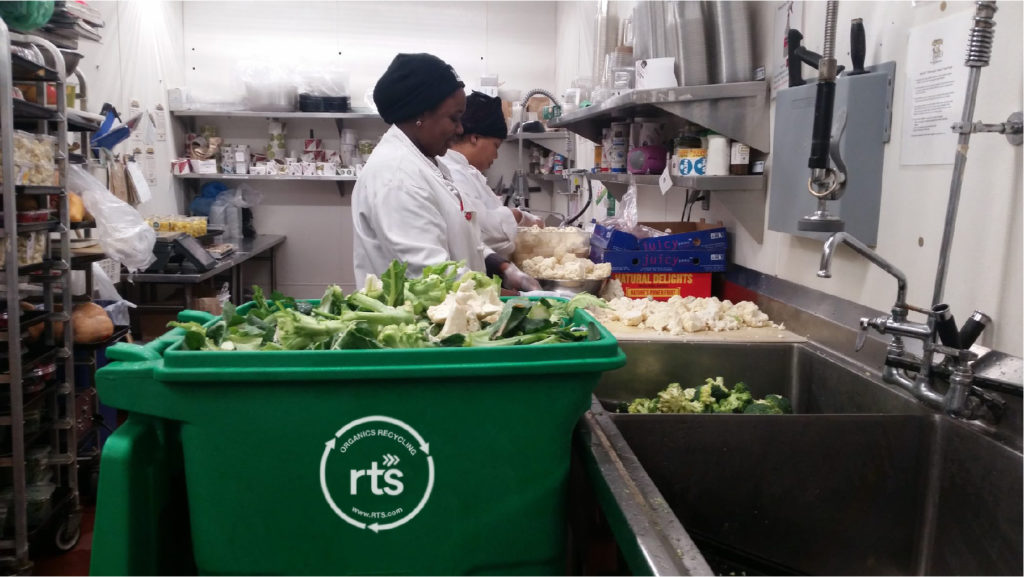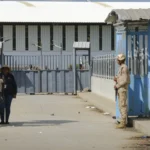NEW YORK — The U.S. Environmental Protection Agency (EPA) has chosen the U.S. Virgin Islands Department of Planning and Natural Resources (VIDPNR) to receive nearly $700,000 in funding under EPA’s Environmental Justice in Communities program to assist restaurants, bars, food trucks and other food service companies cut waste. The funding, which was made possible by President Biden’s Bipartisan Infrastructure Law, will help develop and adopt practices that prevent pollution at the source in local communities. VIDPNR is one of 24 recipients across the country that were selected to collectively receive nearly $16 million in pollution prevention grants.
“The U.S. Virgin Islands has a rich tapestry of excellent food – whether it be from neighborhood restaurants, food trucks or places geared toward tourists. But these businesses sometimes use single-use plastics and other food containers or implements to serve food that unnecessarily fill up the U.S. Virgin Islands’ landfills,” said Lisa F. Garcia, EPA Regional Administrator. “This federal funding, available through the Bipartisan Infrastructure Law, will support a program to give these businesses the help they need to find alternatives and reduce the waste they generate.”
EPA has selected the US Virgin Islands Department of Planning and Natural Resources to receive $699,000 to provide technical assistance to VI businesses in the food service industry. This includes restaurants, bars, food trucks, concessions, marinas, charter boats, and other distributors. The project will expand on the existing VI Clean Coasts program, which focuses on significantly reducing the use and disposal of single-use plastics, polystyrene, and other pollution. The VIDPNR will conduct site visits and help develop source reduction plan and evaluate facility results. The project also will engage stakeholders and gather community input. Information will be taken in part from a literature review of tourism and food service pollution prevention. The proposed project reduces people’s exposure to harmful chemicals and waste, especially in historically marginalized, underserved, and overburdened communities across the Virgin Islands.
“The VI Clean Coasts program was implemented in 2018 with the intended goal of assisting small businesses with eliminating the use of expanded polystyrene. We are proud that six years later it has become an invaluable tool for the territory in ridding our islands from single use plastics and other harmful pollutants,” said U.S. Virgin Islands Department of Planning and Natural Resources Commissioner Jean-Pierre L. Oriol. “With the expansion made possible with this grant we are excited to continue this work for the health of our people and environment.”
“I am pleased to join the Environmental Protection Agency in announcing this consequential investment. The Virgin Islands Department of Planning and Natural Resources will receive $699,000 from the EPA’s Pollution Prevention Grants to Advance Environmental Justice, which will provide pollution prevention technical assistance to businesses in the Virgin Islands in order to improve human health and the environment in disadvantaged communities,” said Congresswoman Stacey Plaskett. “I am grateful for EPA Administrator Michael Regan’s support and to the Biden-Harris Administration for their commitment to the Justice40 Initiative, which aims to deliver 40 percent of the overall benefits of certain federal investments to disadvantaged communities that are marginalized by underinvestment and overburdened by pollution. This funding will go towards improving the resiliency and infrastructure of our community, enabling us to take a proactive approach towards pollution prevention.”
The Environmental Justice in Communities grant program will provide pollution prevention technical assistance to businesses to improve human health and the environment in disadvantaged communities. The Environmental Justice Through Safer and More Sustainable Products grant program will assist businesses to increase the supply, demand, and use of safer and more sustainable products, such as those certified by EPA’s Safer Choice program, or that conform to EPA’s Recommendations for Specifications, Standards and Ecolabels for Federal Purchasing.
EPA’s Pollution Prevention Grant Program advances President Biden’s Justice40 Initiative, which aims to deliver 40 percent of the overall benefits of certain federal investments to disadvantaged communities that are marginalized by underinvestment and overburdened by pollution.
Ensuring greater availability and use of safer and more sustainable products can reduce harmful chemical exposures and their human health and the environmental impacts in disadvantaged communities and create a more sustainable and accessible marketplace. These efforts will continue to benefit businesses and communities across the nation by capturing what works and what can be adjusted in other communities. Recipients will share successful practices that are new or not widely known, as well as lessons learned, so that future businesses and communities can continue to innovate.
EPA anticipates awarding the grants once all legal and administrative requirements are satisfied.
Background:
The United States generates millions of tons of pollution each year and spends billions of dollars per year controlling this pollution. Once in our environment, this pollution harms human and environmental health, which disproportionally impacts underserved communities. Preventing pollution at the source, also known as P2 or source reduction, rather than managing waste after it is produced, is an important part of the solution landscape, and advances a sustainable infrastructure that supports local economies while better protecting public health and the environment. P2 practices can reduce exposure to toxic chemicals, conserve natural resources, and reduce cleanup and financial costs for businesses, particularly for waste management and environmental liability. Practicing P2 is essential for protecting public health and improving environmental conditions in and around disadvantaged communities that have long been overburdened by pollution.
Between 2011-2021, EPA’s Pollution Prevention program has issued nearly 500 grants totaling more than $50 million, which have helped businesses identify, develop and adopt P2 approaches. These approaches have resulted in eliminating 19.8 million metric tons of greenhouse gases, saving 49 billion gallons of water, reducing 917 million pounds of hazardous materials and pollutants, and saving more than $2.2 billion for business.
President Biden’s Bipartisan Infrastructure Law is boosting these efforts by providing a historic $100 million to support the program’s continued efforts. Thanks to the Bipartisan Infrastructure Law, state and Tribal programs that are awarded grants will not be required to provide matching funds, which has helped expand access to these resources and broadened the applicant pool.
For more information about EPA’s Pollution Prevention Grant: Environmental Justice Program, visit EPA’s P2 website.
For more information about EPA’s tools for identifying communities that face disproportionate burdens, visit EPA’s EJ Screen page.
For more information about EPA Region 2, visit their website.



